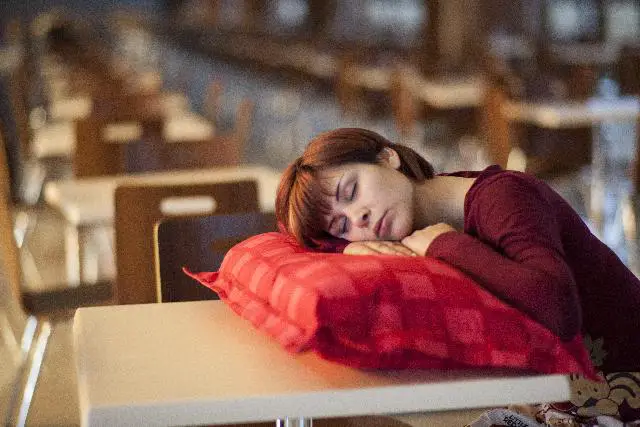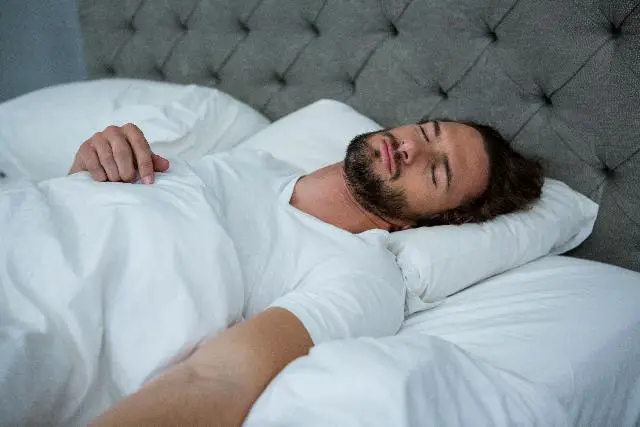Last Updated on August 16, 2021 by QCity Editorial Stuff
There is no living creature that does not need sleep or complete rest every day. If you want to know why just try going without sleep for a long period of time! You will discover that your mind and body would become too tired to work properly. You would become irritable and find it hard to think clearly or concentrate on your work. So sleep is quite simply the time when the cells of your body recover from the work of the day and build up supplies of energy for the next period of activity.

Sleep has always fascinated me because there’s so much mystery surrounding it. We know that we need it but why exactly do we need it? How can something be good or bad depending on whether we’re awake or asleep? Is there any difference between dreaming while we’re awake versus dreaming while we’re asleep? These are just some of the many questions that I’ve had in my mind over the years. So let’s take a look at all of them together here today.
List of 6 Reasons of Why we sleep at Night
1) To recharge batteries – When we wake up from being asleep, we feel refreshed and ready to face another day. Our bodies use energy during the day which they then store away until needed again later. During sleep, our body uses its stored energy to repair itself and prepare for the next day. It also helps clear out toxins and waste products from our system. Sleep allows our brain to process new memories and learnings from the previous day. Without proper sleep, we would not be able to perform optimally throughout the day.
2) To recover from stress – Stress causes an increase in adrenaline levels within our bloodstream. Adrenaline makes us very alert and focused. However, too much of it can cause anxiety and other negative effects such as insomnia. The release of cortisol increases after prolonged periods of stress. Cortisol affects both short-term memory and long-term memory. If we experience chronic stress, our adrenal glands become exhausted and stop producing adequate amounts of cortisol. As a result, we may suffer from depression and lack motivation. In order to combat stress effectively, we must allow ourselves sufficient recovery time through sleep.

3) To maintain healthy immune systems – A study conducted by researchers found that people who slept less than 5 hours per night were twice as likely to develop colds compared to those who got 7+ hours of sleep each night. Another study showed that individuals who slept fewer than 6 hours per night experienced higher rates of infection. Both studies suggest that insufficient sleep weakens the immune system. Therefore, it is important to make sure that we get enough sleep each night.
4) To grow strong bones – Bone density decreases significantly after age 30. Studies show that women lose bone mass faster than men due to hormonal changes associated with pregnancy and childbirth. This loss of bone mass leads to osteoporosis, a condition where bones become brittle and break easily. Osteoporosis occurs when we don’t have enough calcium in our diet. Calcium is essential for building strong bones. Lack of calcium intake results in low bone mineralization. Insufficient calcium consumption will lead to decreased bone strength and an increased risk of fractures.
5) To heal wounds – Wounds require oxygen and nutrients to properly heal: These are provided by the cells surrounding the wound. Cells need rest before they can function efficiently. They also need to regenerate themselves so they can continue healing. Resting your cells means sleeping! Sleeping provides the perfect environment for cell regeneration. We know this because if you cut yourself while awake, you’ll bleed profusely. But if you’re asleep, you won’t even notice the injury.
6) To reduce pain – Pain signals travel along nerves called nociceptors. These nerve endings send messages about potential damage or discomfort to the central nervous system. When these signals reach the CNS, they trigger the production of chemicals known as neurotransmitters which help regulate mood, emotions, behavior, and cognition. Nerve impulses traveling down the spinal cord stimulate muscles to contract to cause muscle spasms. Muscle contraction creates tension on joints leading to stiffness and soreness. Stiffness and soreness create more pressure on the nerves sending additional painful signals to the CNS. The cycle continues until the body has had enough rest. Sleep helps us recover from physical injuries such as sprains, strains, cuts, bruises, burns, etc. It’s no wonder why athletes often refer to “sleeping like an athlete” meaning getting 8-10 hours of uninterrupted sleep every day.

Sleep deprivation causes inflammation throughout the entire body. Inflammation is caused by the release of chemical messengers into the bloodstream. Cytokines cause redness, swelling, heat, and other symptoms commonly seen during acute infections. In addition, cytokine levels increase dramatically following surgery, trauma, and illness. During periods of stress, the brain releases hormones including cortisol and adrenaline which increase heart rate and breathing. Cortisol and adrenaline raise blood sugar levels and decrease insulin sensitivity.
More Stats
One of the things we all know about sleep is that we are unconscious in sleep. We do not know what is going on around us. But that does not mean the body stops all activity. The vital organs continue to work during sleep, but most of the body functions are slowed down.
For example, our breathing becomes slower and deeper. The heart beats more slowly, and the blood pressure is lower. Our arms and legs limp, and muscles that control our posture are at rest. It would impossible for our body to relax to such an extent if we were awake. So sleep does for us what even the quietest rest cannot do.
Your body temperature lowers when you are asleep, which is the reason people go to sleep under some kind of cover. And even though you are unconscious, many of your reflexes still work. For instance, if someone tickles your foot, you will pull it away in your sleep, or even brush a fly from your forehead. You do these things without knowing it.
Do We Lose Consciousness When We Sleep?
We lose consciousness when we fall asleep, at least until we start to dream.
What is the point of sleep?
Short Answer- Sleep keeps us healthy and functioning well. It lets your body and brain repair, restore, and reenergize.
What are the 3 reasons we sleep?
1) Sleep clears our brains of junk.
2) Sleep strengthens our memories.
3) Sleep restores our bodies.
Where do we go when we dream?
Short Answer- The brain is active all night long, with particularly intense brain activity in the forebrain and midbrain during rapid eye movement (REM) sleep, which is when we dream.






